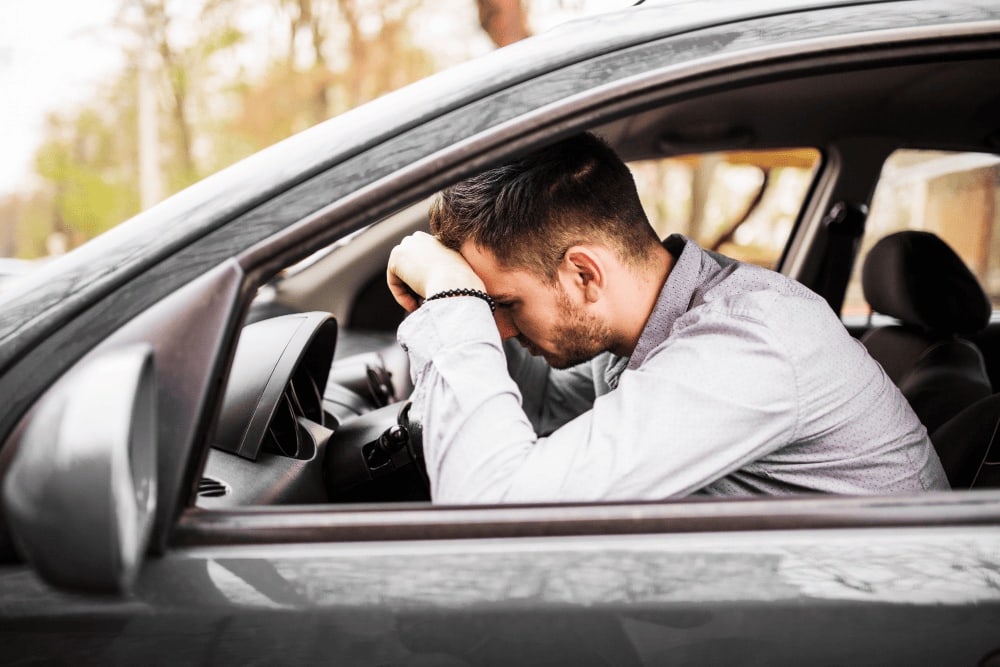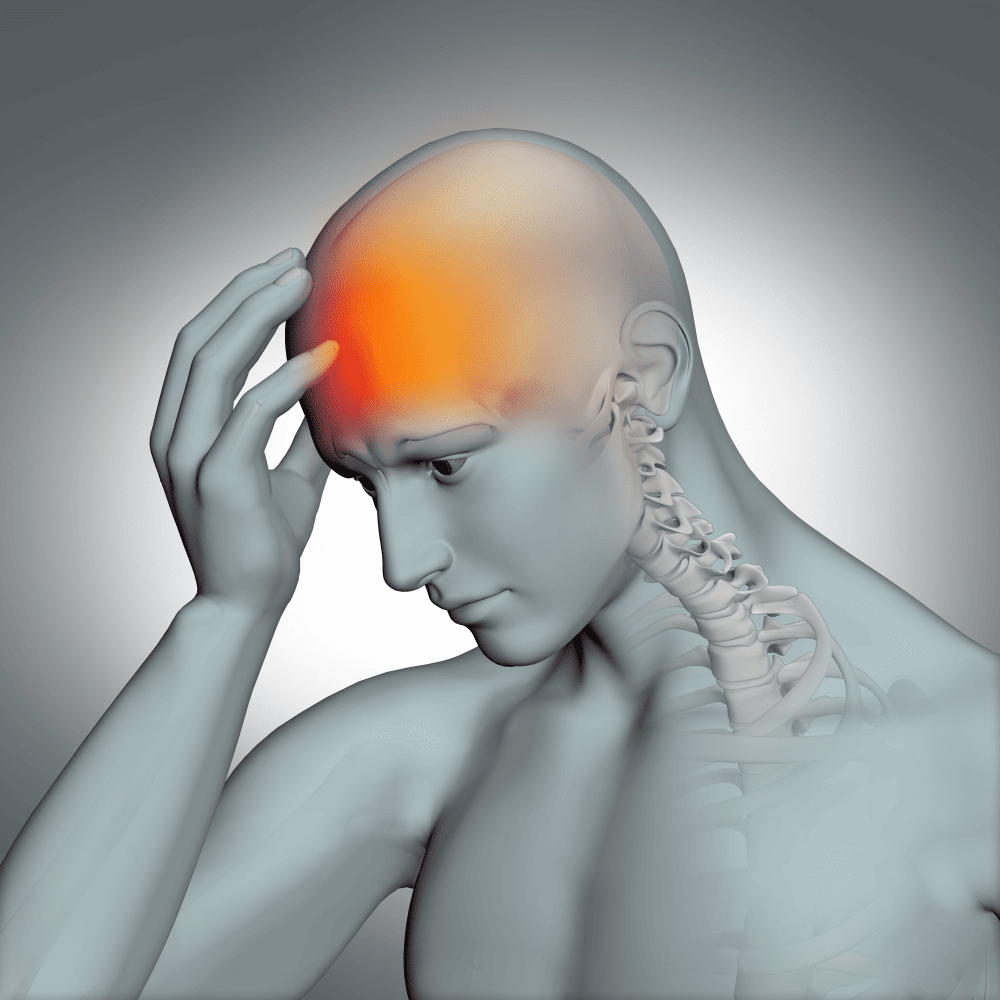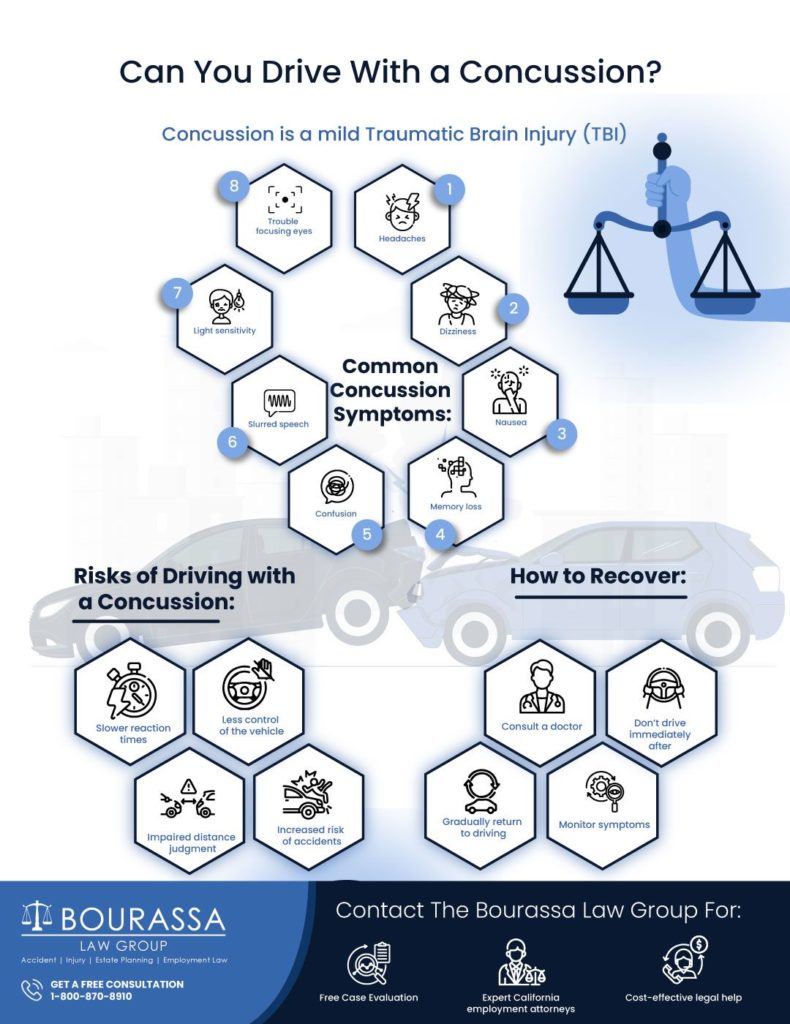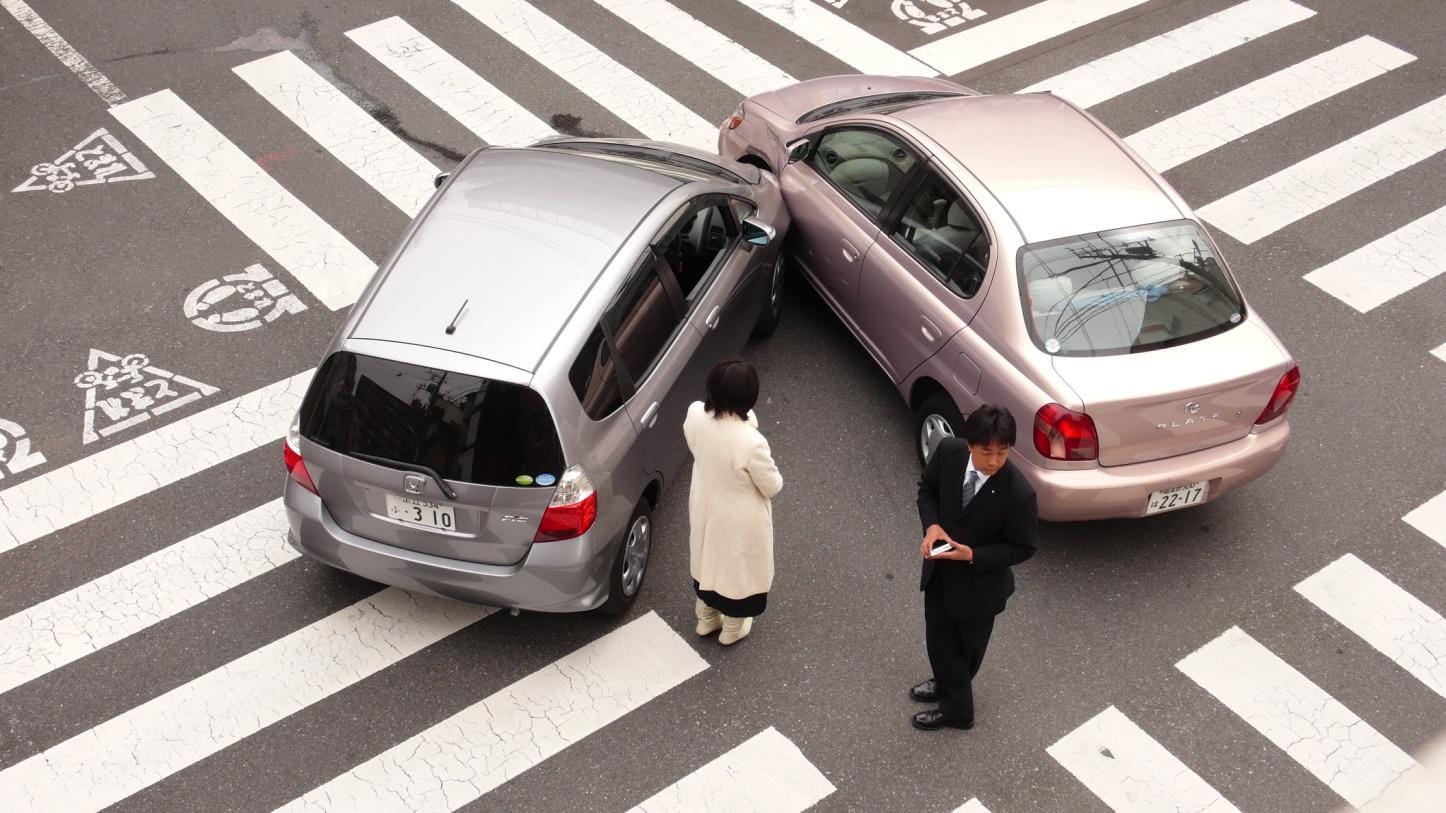The question, “Can you drive with a concussion?” is one that warrants serious consideration and should not be dismissed lightly. Despite growing awareness about the importance of identifying concussion symptoms and seeking medical attention promptly, one aspect that often remains a topic of confusion is the ability to drive after a concussion.
This article aims to probe into the critical questions surrounding this issue and explore the associated risks and precautions.

Understanding Concussion Symptoms and Their Impact on Driving
Before addressing the feasibility of driving with a concussion, it’s essential to understand what a concussion is. A concussion, classified as a mild traumatic brain injury (TBI), results from a sudden blow to or violent shaking of the head and body. The impact of this injury can range from mild to severe, with even milder cases posing substantial risks when it comes to driving.
Concussion Symptoms
Concussion symptoms vary from person to person, but some of the most common symptoms of a concussion include headaches, dizziness, nausea, confusion, slurred speech, sensitivity to light, and difficulties in eye movement or focus. These symptoms of a concussion can persist for hours, days, or even weeks, depending on the severity of the head injury and the individual’s unique physiological response to it.
One of the most critical aspects is that concussion patients often experience slower reaction times and impaired decision-making abilities. These cognitive and physical impairments directly impact their driving skills, making it dangerous for them to get behind the wheel immediately after a concussion.
In some situations, however, a concussion patient might not realize they have certain symptoms, but others around them might see those signs and recognize the need for medical treatment.

Risks of Driving with a Concussion
Driving with a concussion can present various risks, both for the driver and others on the road. Here are some of the potential dangers associated with getting back behind the wheel prematurely:
Impaired Reaction Times:
Concussion symptoms can cause slower reaction times, making it challenging to respond quickly to abrupt movements and changes in traffic flow.
Less Vehicle Control:
Reduced cognitive function can result in less vehicle control, increasing the likelihood of erratic driving.
Increased Stopping Distance:
A concussion can affect an individual’s ability to judge distances accurately for timely stopping their vehicle.
Risk of Car Accidents:
Driving with a concussion elevates the risk of car accidents, which can elevate their injury and harm others involved.

The Medical Perspective
Healthcare providers are consistent in their recommendations concerning driving after a concussion. Most advise against it, as it poses a significant risk to the individual and the public. Seeking medical attention is crucial for injury assessment, symptom monitoring, and receiving guidance on the appropriate timing to resume driving safely.
Recent studies have shown that even mild TBIs can have lasting effects on an individual’s driving skills. Prioritizing recovery and adhering to medical advice is essential under these conditions.
Legal Consequences
In many regions, it is not only a matter of medical safety but also a legal issue. Driving after a concussion or medical condition can result in legal consequences, especially if it leads to an accident that harms others. For instance, if a teen driver chooses to drive with a concussion and gets involved in a car accident, they may face serious legal ramifications.

Recovery and Returning to the Road
The path to recovery after a concussion varies for each individual. Factors such as the severity of the concussion, the patient’s overall health, and symptom management affect the recovery timeline. However, there are some general guidelines to follow:
No Driving Immediately After a Concussion:
It may be recommended to avoid driving for a certain period after a concussion as advised by your healthcare provider.
Consult a Doctor:
It is crucial to seek medical attention immediately after a concussion. A doctor can provide an accurate diagnosis, oversee symptom progression, and guide the patient’s recovery.
Gradual Return to Driving:
Upon a healthcare provider’s approval, an individual may gradually return to driving. This may involve a driving simulation to assess their abilities, especially if their prior driving skills were intricate.
Monitor Symptoms:
Continuous symptom monitoring and regular consultations with a healthcare provider are essential, even after one resumes driving. Aggravation of any symptom should be reported promptly.

CONTACT THE BOURASSA LAW GROUP FOR EXPERIENCED BRAIN INJURY LAWYERS
The answer to whether one can drive with a concussion is straightforward: it is generally not advisable. Concussion symptoms, even in mild cases, can substantially impair an individual’s capacity to drive safely. The risks associated with driving with a concussion far outweigh any perceived convenience or necessity. It is paramount to prioritize one’s health and safety, as well as the safety of others on the road, by refraining from driving after a concussion and seeking timely medical attention and guidance during the recovery process. Lives depend on it.
If you or a loved one has experienced a traumatic brain injury, it’s crucial to have the right legal support on your side. Brain injuries can have long-lasting effects, and you deserve expert guidance.
Contact BLG, your top choice for brain injury lawyers, to ensure you get the assistance and compensation you need. Your justice and recovery are our priority. Don’t hesitate to reach out to BLG today for the support you deserve.






